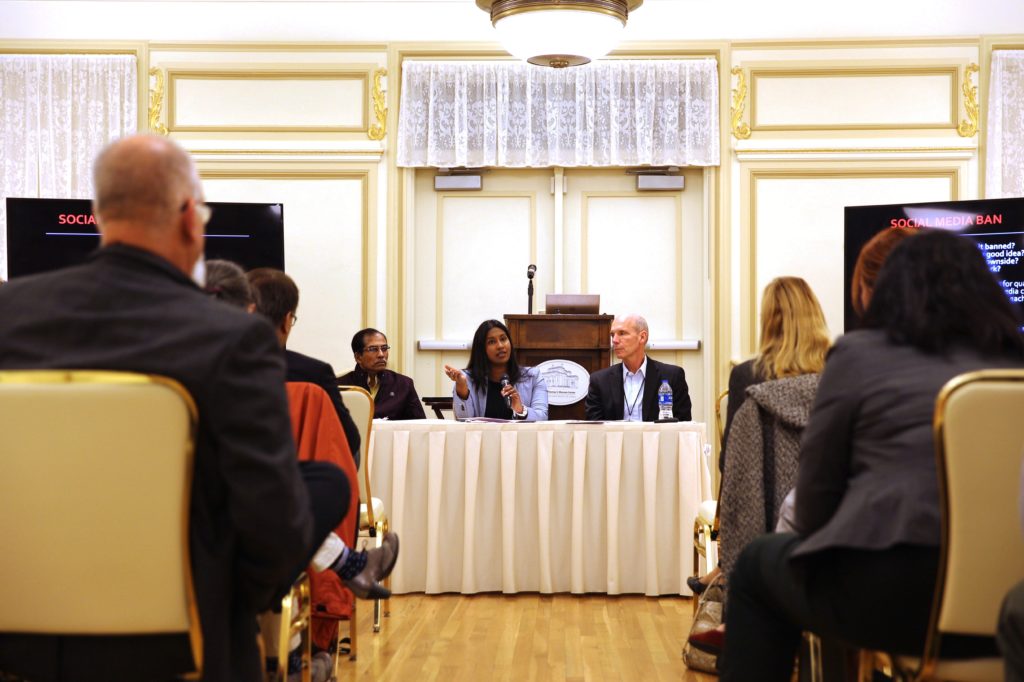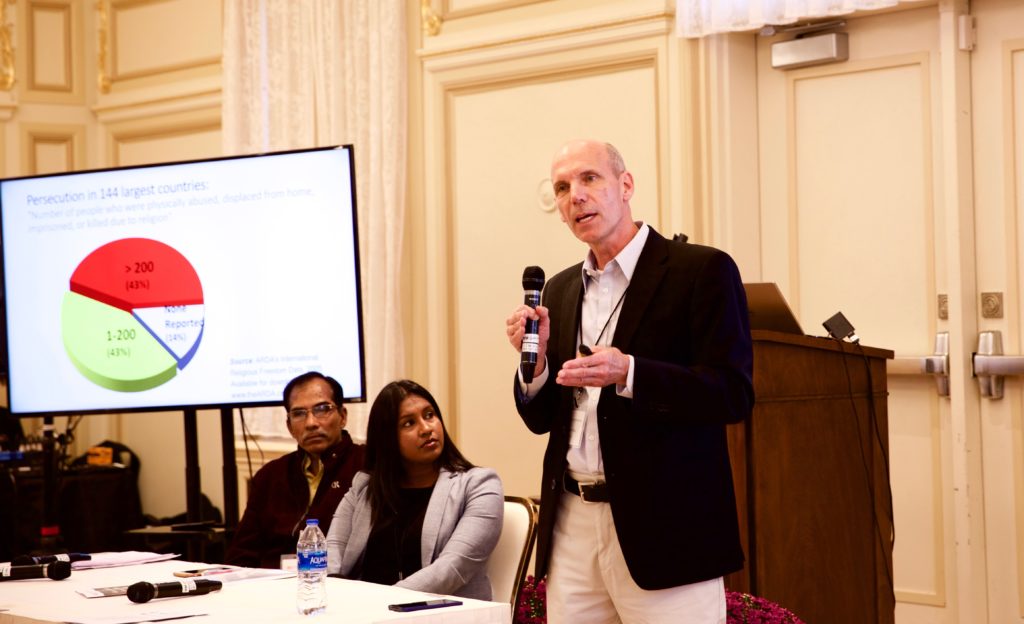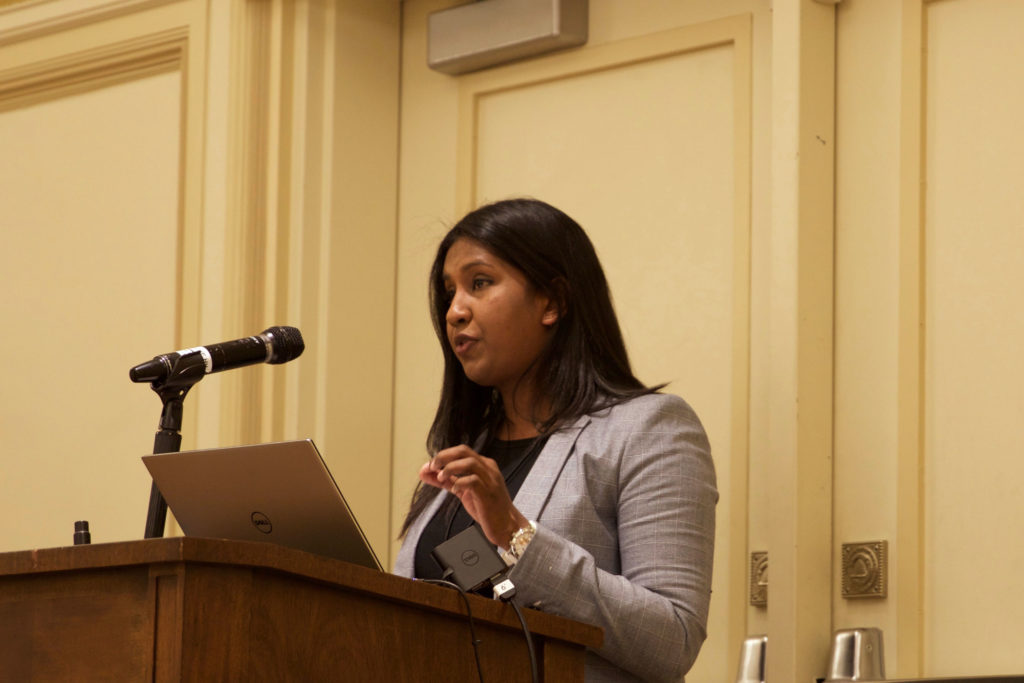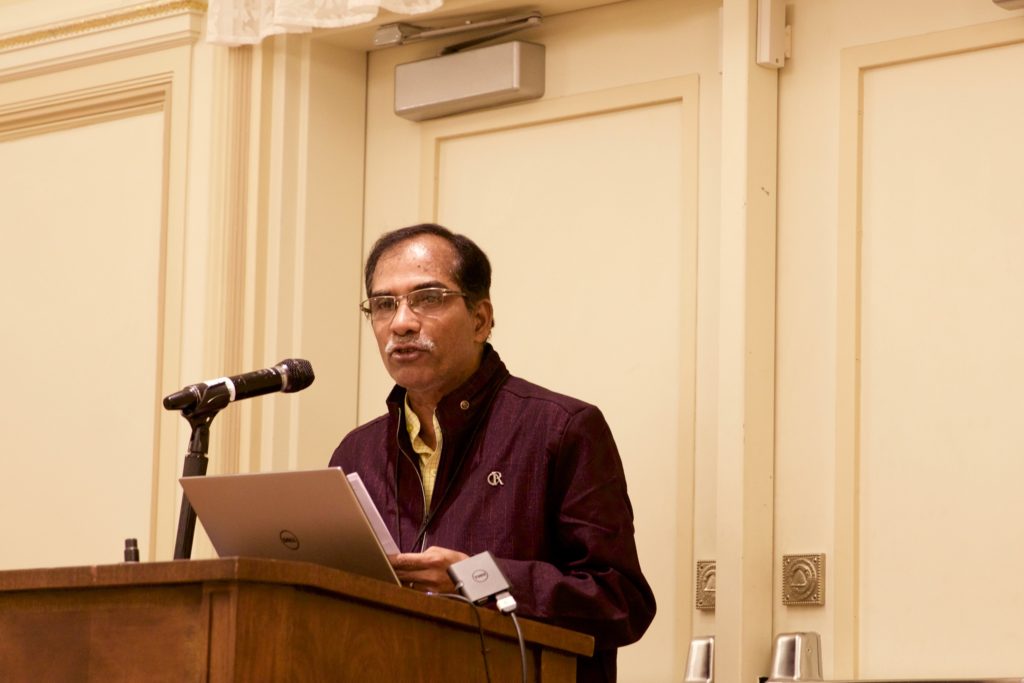
A panel comprised of international journalists and a religion researcher, led a discussion Wednesday, Oct. 9 about the difficulties religions face with their media portrayal.
David Briggs, the founder of the International Association of Religion Journalists and a former writer for The Associated Press, was the discussion’s moderator. The panel was held in Salt Lake City at the Thomas S. Monson Center.
“We are all responsible for a more peaceful world,” Briggs said. “By respecting religious freedom, we design a path of peace and religious prosperity.”
Roger Finke, a professor of sociology and religious studies at Pennsylvania State University, was the first to present. He shared some discoveries he found throughout his research on religion in the U.S. and across the globe. Finke said he was surprised by the magnitude of religious persecution occurring around the world, including in the U.S.
He described two reasons religious persecution occurs, the first being that it has to do with clashes of civilizations, many of which have religiosity as the driving force behind them. The second reason is based on the response to the clash between civilizations.

“When religious freedoms are denied, there’s increased discrimination and increased persecution,” Finke said.
Finke continued by emphasizing the crucial role journalists play in such issues.
“Being able to tell that story, and tell it effectively and how it applies to people’s lives, that’s important,” he said.
Sri Lankan broadcast journalist Indeewari Amuwatte presented on the struggles reporters faced during the 2019 Sri Lanka Easter bombings. She retold her story of the horrific Sunday morning when her nation was turned into a target for radical terrorists.
“I didn’t want to believe my beautiful country, which spent decades attempting to exit the brutal war with terrorists, had been thrust back to those dark times,” Amuwatte said.

She said it was important to keep people updated on the truth about the events which took place.
“International media’s portrayal of communal violence in Sri Lanka added to the growing tensions. It was not the time for experimenting storytelling with unverified information,” Amuwatte said.
She expressed some of her disappointment with the lack of positive stories that were featured and emphasized the importance of showing all sides of a story.
Uday Basu, a bureau chief for a daily newspaper in India, described the crucial role journalists have to bring honest reporting to secular communities.
“Journalists are essentially the soldiers of truth,” Basu said. “When it comes to religion journalism, the battle is many times fraught with grave dangers.”

He then shared some of the ways he effectively covered issues centered around the mistreatment of religious groups in India. He described the religious divisiveness as so bad that Hindus and Muslims would go as far as to not even accept a glass of water from one another.
“This is your problem, you don’t know how to treat a human being like a human being. Whatever your religious beliefs, I have no problem accepting you as my brothers,” Basu said.
He closed his remarks by reinforcing his belief that the welfare of mankind comes from the examples of various religious figures and that this belief was a guiding force in his work as a journalist.




